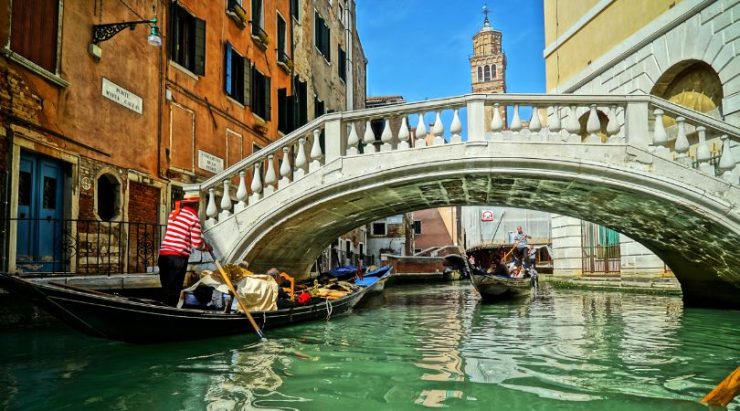Birth traditions are unique forms of celebration upon the arrival of a new baby. These traditional customs hold significant meaning as they have likely been followed for generations within the baby’s culture or family.
Just like in many countries across the world, the Italians treat a new arrival as a significant event. Once the baby is born, the family prepares for a series of large celebrations filled with gifts.
What are the popular birth traditions in Italy?
In Italy, there is a large focus on commemorating the baby through gifts and other handmade items. Baptisms are very common; babies are generally baptized as Roman Catholic. Further, the infant’s name holds great meaning as it often honours past relatives or other important figures.
Naming the Baby
Many Italians prefer to name their child a traditional Italian name. They’d also rather stick to the conventional way that it’s spelt rather than make it unique. Some parents name their new arrival after the baby’s grandparents. Traditionally, the oldest son is named after their paternal grandfather, and the oldest daughter is named after their paternal grandmother. The next son and daughter are then named after their maternal grandparents.
It’s also common to name your baby after an Italian saint. If your little one is born on a day that’s dedicated to a saint, your family may favour this name.
The Birth Ribbon (Fiocco Nascita)
Birth ribbons are an elegant way to publicly announce the baby’s arrival to neighbours and friends. The infant’s family places a large ribbon on either their door or gate, ensuring it’s visible. Blue ribbons are used for boys, and pink ribbons are used for girls.
The baby’s mother (or maternal grandmother) makes the ribbon during the baby’s hospital stay. It’s typically embroidered with the baby’s name, weight, length, and birthdate.
The Birth Kit (Corredino Nascita)
The kit, organized by either the baby’s grandmother or great-grandmother, consists of beautiful handmade pieces for the baby, such as blankets, hats, shoes, and bibs. The pieces have decorations, commonly of animals and of the baby’s name. Family members may craft the items themselves, but they can also be purchased from Italian stores.
Arguably the most essential item in the kit is the “good luck shirt,” also known as the camicina della fortuna. It’s either white or red, and it’s passed down from generation to generation. Traditionally, it’s the first item that the baby wears.
The Baptism
The baby’s baptism can be an extravagant event for Italians. In some cases, the event is even larger than a wedding. It generally takes place at a Roman Catholic church, and it can range from an intimate event to a large celebration. At the more excessive baptisms, the family invites many individuals, there is an extensive selection of food, and guests receive a gift for attending.
No Baby Shower
Unlike Canadians, the Italians don’t actually hold baby showers. They don’t believe in giving gifts to the baby before they’re born as it indicates bad luck. Instead, the little one is showered with gifts immediately after their birth.
Gifting
Since friends and family members only give gifts after the baby’s birth, the little one receives the majority of their gifts once settled in at home with mom.
At their home, the mother will generally offer sugared almonds, also known as bomboniere, to show appreciation to the visitors. The visitors may also receive a small token that displays the baby’s name and birthdate.
REFERENCES:
8 Common Italian Baby Traditions
Written by: Alicia Chow
Check out our Baby Birth Tradition blog series – Baby Birth Traditions – Japan





 Invitez familles et amis à assister à cet événement mémorable de votre grossesse. Célébrez avec vos proches où qu’ils soient dans le monde ce moment spécial de lien avec l’enfant.
Invitez familles et amis à assister à cet événement mémorable de votre grossesse. Célébrez avec vos proches où qu’ils soient dans le monde ce moment spécial de lien avec l’enfant. Rien n’est plus beau que les battements de cœur de votre bébé. Enregistrez ce son pour toujours dans un Ourson Coup de cœur de UC Baby®. Il ne s’agit pas simplement d’un beau souvenir, mais aussi d’un moyen efficace qui apaise votre bébé pour l’aider à s’endormir.
Rien n’est plus beau que les battements de cœur de votre bébé. Enregistrez ce son pour toujours dans un Ourson Coup de cœur de UC Baby®. Il ne s’agit pas simplement d’un beau souvenir, mais aussi d’un moyen efficace qui apaise votre bébé pour l’aider à s’endormir.

